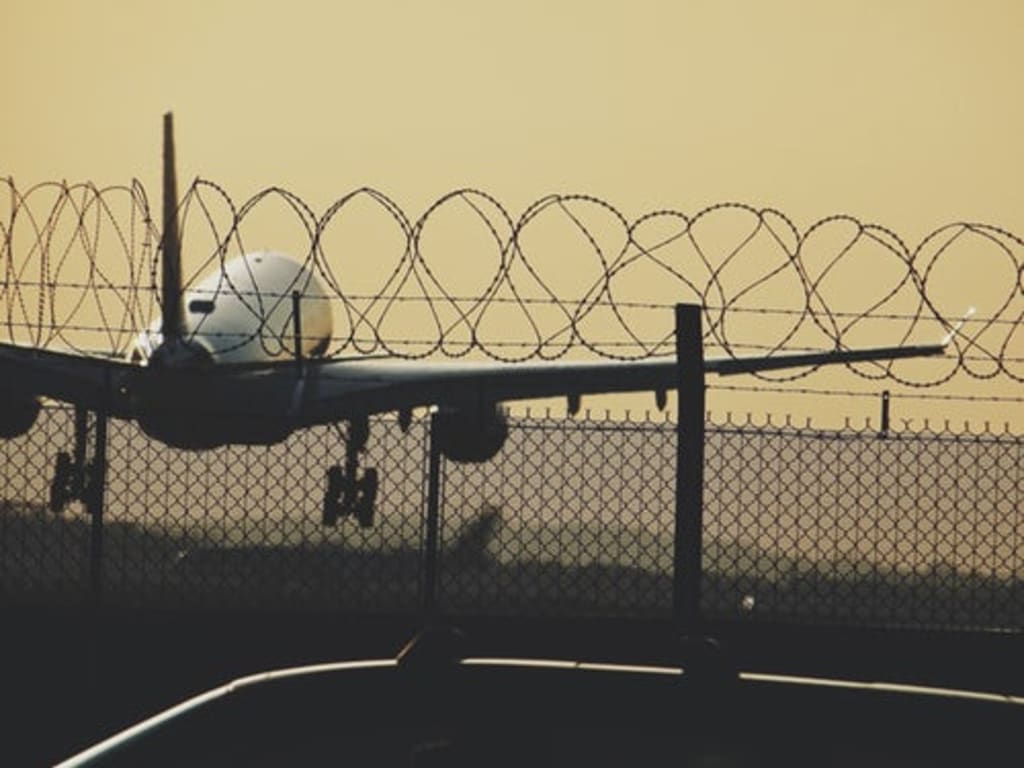Coping with the Threat of Terrorism
Travel Safety Tips

It seems, of late, that the world is going crazy. We confront a risk of injury and death that dominates our awareness. As acts of terrorism are played out nightly on the national news, many people live in real and daily paralytic fear. This is a time that is especially difficult for those who survived the horrific terrorist acts of 9/11 or who have endured the grief of having a family member or friend killed because of an act of terrorism.
First off, fear of being a victim of a terrorist act is not an irrational fear. The ruthless bomb and gun attacks in Paris, France and San Diego, California acted as an abrupt and brutal reminder to the western world that terrorists may be amongst us, ready to strike at any time, anywhere. As the world expresses sympathy and compassion for recent events, there are ever-growing fears of when and where the next attack will occur.
Fear robs today’s peace, causing us to worry and fret about the future. Shootings in movie theaters, recreational venues, shopping malls, churches, the workplace, and our children’s schools have become all too commonplace. Psychologists explain that we tend to respond and make judgments about broad patterns of phenomena based on a small number of remembered and dramatic episodes. Terrorism provides no shortage of such examples with shocking stories and vivid images associated with terrorist attacks that write themselves indelibly into our subconscious; leading us to exaggerate the threat.
Studies indicate that most Americans have a bigger fear of terrorism than they do of being hospitalized, contracting an infectious disease, or becoming a victim of a natural disaster or a violent crime. Recently released Gallup polls indicate that despite an extremely low likelihood, the majority of Americans stated that they were very afraid or highly concerned that they or a family member would be involved in a terrorist event.
It is important to keep our fears in perspective. While it is quite possible that an Islamic State-related attack will occur again in America, the likelihood of any individual person to be injured or killed in such an attack is relatively remote.
It is important to recognize the threat of terrorist attack, however reacting effectively to it as individuals requires that we keep the threat to our personal safety in perspective as we incorporate changes in our lifestyle to take steps to manage our fears and be prepared to act in the event of any life-threatening event.
When we focus on the worries of the world, living under high levels of stress and worry, our bodies are in a constant “flight or fight” response mode which elevates blood pressure and suppresses our immune system, making us venerable to disease. If we alter our lifestyle, avoid crowds, cancel travel plans, dine out and shop less, we injure more than the economy; we harm our health. Medical experts advise that persons living under a constant threat of danger and fear of a terrorist act should be just as vigilant and concerned about their health as they are about their safety.
Fear steals the joy from our day. If we refuse to live our daily lives, terrorism wins. If your fears are excessive and prevent living your life to its fullest, by all means, seek professional counseling. Counseling will not make the threat go away, but it will help to calm your fears.
Peter Hartcher, Sydney Morning Herald Political and International Editor helps us understand our irrational fears, and gain a better sense of perspective. On December 7, 2015, Hartcher stated in the Biscayne News, “The World Health Organization’s latest available figures tell us that about 56 million people die worldwide each year. Far and away the biggest killer is heart disease, responsible for 7.4 million deaths in 2012. That's mostly death by lifestyle indulgence, and mostly in rich countries. Another among the top 10 killers is road accidents, the cause of another 1.3 million deaths worldwide.
By contrast, terrorist attacks last year killed about 43,500 people globally, according to the Global Terrorism Database. Or about 0.08 percent of all deaths. That's fewer than half the number where "alcohol" was listed as the cause.
Is terrorism in the top 10? Of course not. If it ranked in the list of biggest killers, it would come in at number 65. Just ahead of appendicitis. You can halve the number of terrorism-related deaths if you exclude war zones, like Iraq and Syria. And you can cut it by a further quarter if you subtract the deaths of the terrorists themselves, blown up by bombs of their own making.
So we're left with some 15,000 deaths of innocent victims a year worldwide, outside war zones. On the rankings of the cause of death, that would put it somewhere between multiple sclerosis and leprosy. It's that rare."
Manage Fear—Become Pro-Active
Stress is increased by inaction. Many people feel helpless in the face of the constant threat of terrorism and violence, fearing the things we cannot control. Fear can paralyze or motivate action. By becoming pro-active in the face of terror, we can learn how to control and channel our fears.
Taking ownership of our security means being aware and alert within our community and in the workplace while staying abreast of emerging news and security alerts. The American Psychological Association advises, “Xenophobia — fear or hatred of strangers or foreigners—can be heightened under a terrorist threat and can become a social and psychological danger. The fear generated by terrorism can be exacerbated by a population's diversity if there is distrust between groups, categories, and classification of citizens. It is important to recognize that diversity in a population can be an opportunity for unity and strength. There are members of our diverse society who have experienced past terrorist incidents. The knowledge and experience they have gained from surviving and coping with these incidents can make them a valuable resource on how to cope and how to offer assistance to others.”
Because we fear physical injury, medical experts also tell us that we can gain a sense of empowerment by taking charge of our health and pursuing optimum physical fitness. Exercise relieves stress as well as building strength and endurance.
Additionally, we can achieve a sense of empowerment by learning new skills. Consider taking a self-defense class or mastering emergency first aid and CPR classes.
Remind yourself that you have overcome trauma in the past. Recall what helped you managed stress in that situation, remember that your anxiety is a normal reaction to an abnormal situation.
References:
We need to harden up: unreasonable fear of terrorism
The Psychological Effects of Witnessing Terrorism
About the Creator
Marlene Affeld
“A passionate writer for more than 30 years, Marlene Affeld’s passion for the environment inspires her to write informative articles to assist others in living a green lifestyle.”






Comments
There are no comments for this story
Be the first to respond and start the conversation.